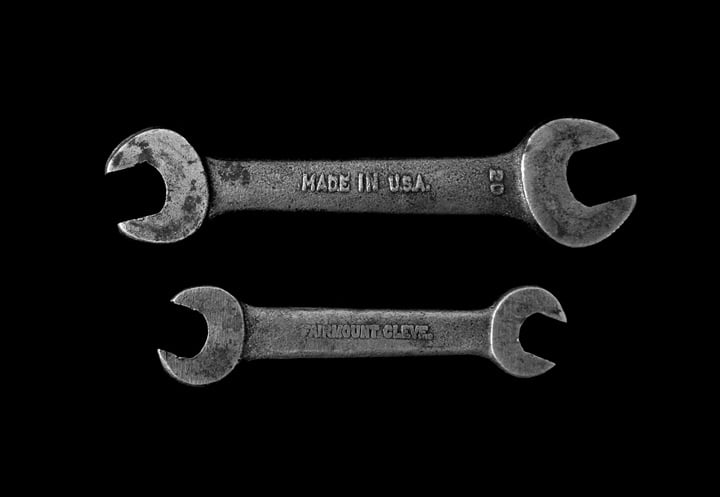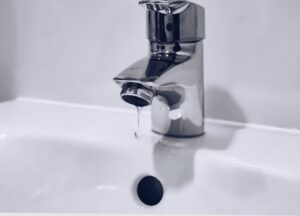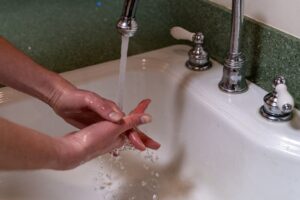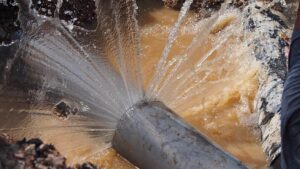It’s the middle of winter and you’re snuggled up in bed, when you hear a strange noise coming from your bathroom. Suddenly, you realize that it’s not just the sound of your pipes freezing – it’s a plumbing emergency! If you want to avoid this situation (and the expensive repair bill that comes with it), then read on for six tips to prevent plumbing emergencies from happening in the first place. But first, if you search Google for “plumbers near me” and don’t see Rooter-Man SC, you’re missing out. We make up some of the best plumbers in Charleston!
Okay, let’s get right into it!
1. Know Where Your Shut-Off Valves Are and How to Use Them
As any experienced homeowner knows, plumbing emergencies can strike at any time. To minimize the damage and ensure that your family is safe, it’s important to know where your shut-off valves are and how to use them. Here are some tips to help:
- Know where your main water shut-off valve is located. In most homes, it’s located near the water meter or the main water line.
- Familiarize yourself with the location of all the other shut-off valves in your home, including those for the toilet, washing machine, and dishwasher.
- Learn how to properly use a wrench so that you can turn off the water in an emergency.
- Get in the habit of regularly checking all of your shut-off valves to make sure they’re working properly.
- Keep a spare set of keys for all of your shut-off valves in a safe place where you can easily access them in an emergency.
- Make sure everyone in your family knows where the shut-off valves are located and how to use them.
2. Know What Is Flushable and Educate Others in the House
It’s important to educate yourself and all the members of your household on what is flushable and what is not. Many people make the mistake of flushing things like paper towels, cotton balls, baby wipes, feminine products, and even dental floss down the toilet. These items can easily clog pipes or cause other plumbing issues.
Invest in a trash can for the bathroom and educate your family on what kinds of things should never be flushed. More examples include cat litter, cigarette butts, and even medications.
3. Use the Trash Can Not the Disposal
If you’re looking to prevent a plumbing emergency, your trash can is your new best friend. While your garbage disposal might seem like an easy way to get rid of food scraps, it’s actually one of the leading causes of plumbing issues. When you use your disposal, food scraps and grease can build up in your pipes, causing clogs that can lead to major backups.
And while you might be tempted to use harsh chemicals to clear the clog, these products can actually do more harm than good by damaging your pipes. The bottom line is that your trash can is designed to handle food waste, so make use of it and save yourself the headache of a plumbing emergency.
4. Buy a Good Plunger and Know How to Use It
It’s a small investment that can save you a lot of headaches – make sure to have a good plunger on hand at all times. And it’s not enough just to have one – make sure you know how to properly use it in case of a clog. Here are the basics:
- Make sure the plunger is properly fitted to the drain before using.
- Plunge vigorously and steadily until the clog is cleared.
- If the clog persists, don’t keep plunging – call a plumber instead to prevent further damage to your pipes. Just search “plumbers near me” or “plumbers in Charleston” on Google.
5. Do Not Ignore Leaks
Even a small leak can lead to major damage, so it’s important not to ignore them. Keep an eye out for any signs of water leakage, such as wet spots on walls or floors, dripping faucets, and running toilets.
If you do notice a leak, it’s important to address it immediately by turning off the water supply and possibly calling a plumber if necessary. Ignoring leaks can lead to mold growth, water damage, and higher utility bills.
6. Regularly Clean and Maintain Your Plumbing Fixtures
Preventing a plumbing emergency is often as simple as regularly cleaning and maintaining your plumbing fixtures. This includes things like regularly cleaning out the lint trap in your washing machine, removing any buildup in showerheads or faucets, and replacing old pipes or fixtures when necessary.
Regular maintenance can not only prevent plumbing emergencies but can also increase the efficiency and longevity of your plumbing system.
7. Visually Inspect Your Plumbing Annually for Leaks
In addition to regular maintenance, it’s also a good idea to visually inspect your plumbing at least once a year for any signs of leaks or potential problems. This can be as simple as checking under sinks and behind toilets for any moisture or pooling water.
If you do notice any issues, it’s important to address them immediately with the help of a professional plumber if necessary. Regular inspections can save you from the hassle and expense of a major plumbing emergency down the road.
Final Thoughts
Taking the time to prevent a plumbing emergency can save you a lot of stress and expense in the long run. By following these tips, you can keep your plumbing system running smoothly and avoid any potential disasters. And remember, when in doubt, always call a professional plumber for assistance. It’s better to be safe than sorry!
Bonus Tip: Have the contact information for a trusted plumber on hand in case of emergencies. That way, you won’t even need to search “plumbers near me” in a panic – you’ll already have someone ready to help. Rooter-Man SC is a great option for plumbing services in Charleston and the surrounding areas.
Contact us today to make sure your plumbing is ready for anything!







